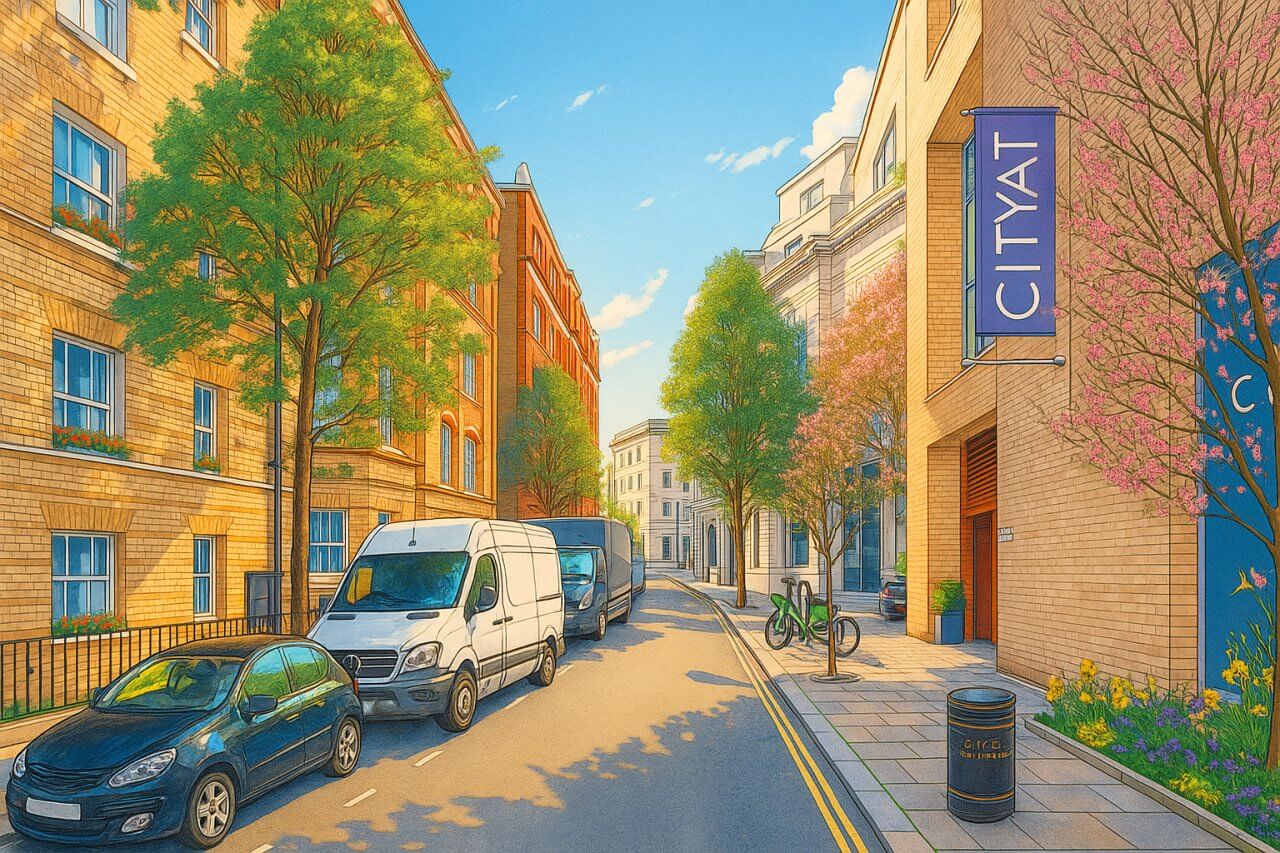
Wild Street, London
Wild Street is a short, historic street located in the City of Westminster, in the heart of the West End of London. It connects Great Queen Street in the west to Kemble Street in the east. Though modest in length and profile, the street holds a quiet significance as part of the Covent Garden area’s historical and urban fabric.
Street Layout and Surroundings
Wild Street runs in a roughly east–west direction. On the western end, it joins Great Queen Street, a broader and more prominent thoroughfare that continues into Covent Garden. At its eastern end, Wild Street meets Kemble Street, just a stone’s throw from Drury Lane. The street is flanked by a mix of residential apartments and office buildings, with occasional retail units at ground level. Narrow pavements and light traffic make it a relatively calm and walkable part of central London.
Nearby streets include Drury Lane to the south, and Parker Street and Newton Street to the north. The area’s urban grid makes it convenient to explore adjacent blocks and access key locations such as Lincoln’s Inn Fields and the theatres of Covent Garden.
History of Wild Street
Wild Street dates back to the 17th century and was once known as Weld Street, named after the Weld family, aristocrats with estates in the area. The name evolved phonetically over time to its current form, “Wild.” The pronunciation remains the same as the common English word “wild,” rendered in the International Phonetic Alphabet as /waɪld/.
Historically, the street was part of the development of Covent Garden and its expansion eastward during the Georgian era. It played a role as a quieter backstreet parallel to more trafficked roads and was once home to a number of taverns and artisan workshops.
Nearby Attractions and Sights
Though Wild Street itself is relatively understated, it sits within walking distance of several major attractions:
- Covent Garden Market – A vibrant area full of shops, cafes, and street performances, just five minutes’ walk away.
- Freemasons’ Hall – Located on Great Queen Street, this Grade II* listed building is one of the area’s architectural highlights.
- London Transport Museum – Situated in Covent Garden Piazza, offering exhibits on the history of transport in the city.
- Theatre Royal Drury Lane – A historic venue for West End shows, just south of Wild Street.
Real Estate on Wild Street
Wild Street offers a small number of residential properties, many of which are modern flats within converted office buildings. As of June 2025, the average price for a two-bedroom apartment on Wild Street is approximately £1.15 million. These properties typically range from 850 to 1,100 square feet (79–102 sq m). Rental prices are also high, with two-bedroom units renting for around £4,000 per month due to the central location.
Compared to the rest of London, Wild Street prices are on the higher end, reflecting its desirable position in the West End and proximity to cultural landmarks and excellent transport links.
Transport Connections
London Underground
Wild Street is well-served by several nearby London Underground stations:
- Covent Garden Station (Piccadilly Line) – approximately a 5-minute walk.
- Holborn Station (Central and Piccadilly Lines) – about 7 minutes on foot.
- Temple Station (District and Circle Lines) – around 12 minutes' walk to the south.
These connections make Wild Street easily accessible from various parts of the capital, and its proximity to key stations adds to its appeal.
Bus Routes
Nearby bus stops on Kingsway and High Holborn provide connections to major London locations. Key routes passing through these stops include:
- Route 1 (Canada Water to Tottenham Court Road)
- Route 59 (Streatham Hill to King’s Cross)
- Route 68 (West Norwood to Euston)
There are also night buses serving the area, offering 24-hour connectivity.
Fun Fact
In the 18th century, Wild Street was home to several small printing presses and coffee houses frequented by local artisans and political thinkers. It was briefly known for being a discreet meeting point for intellectuals and pamphleteers of the Enlightenment period.
Quick Facts
- Location: City of Westminster, London
- Connects: Great Queen Street (west) to Kemble Street (east)
- Pronunciation: “Wild” /waɪld/
- Nearby Stations: Covent Garden (Piccadilly), Holborn (Central, Piccadilly), Temple (District, Circle)
- Nearby Bus Routes: 1, 59, 68 and others from Kingsway and High Holborn
- Real Estate Prices (June 2025): £1.15M average for 2-bed flats (850–1,100 sq ft / 79–102 sq m)
- Rental Prices: Around £4,000/month for 2-bedroom flats
- Nearby Attractions: Covent Garden Market, Freemasons’ Hall, Theatre Royal Drury Lane
- Historical Name: Formerly "Weld Street", renamed and simplified over time
- Fun Fact: Once a gathering spot for pamphleteers and Enlightenment thinkers
Map of Wild Street, London
 Painting of Wild Street, London
Painting of Wild Street, London